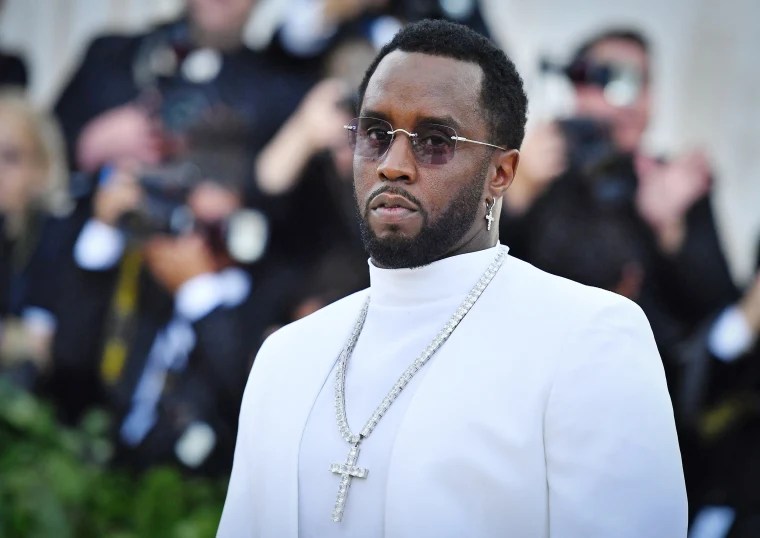Shedding Light On Unspoken Stories

The world of fame and fortune often hides dark secrets, and the saga of Diddy male victims is no exception. As one of the most influential figures in the music industry, Sean Combs, also known as Diddy, has long been a polarizing figure. While he is celebrated for his contributions to hip-hop and entrepreneurship, there are troubling allegations that paint a different picture of his personal life. Numerous men have come forward, sharing their stories that delve into experiences of manipulation, abuse, and betrayal. In this article, we will explore the narratives surrounding Diddy male victims and bring forth their often-overlooked perspectives.
Through examining these narratives, we will uncover the complexities of power dynamics in the entertainment industry. How do these dynamics affect the lives of those involved? What are the societal implications of such stories? By diving deep into this topic, we aim to foster a better understanding of the challenges faced by male victims in a world that often prioritizes the voices of the powerful.
Ultimately, discussing Diddy male victims is not just about one individual's actions; it’s about addressing a broader issue within society. It’s about recognizing the courage of those who come forward and the importance of listening to their experiences. Join us as we navigate this intricate web of stories, truths, and the quest for justice.
Who is Diddy? A Brief Biography
Sean Combs, known professionally as Diddy, Puff Daddy, or P. Diddy, is an American rapper, record producer, and entrepreneur. Born on November 4, 1969, in Harlem, New York City, he rose to fame in the 1990s with his debut album "No Way Out." Diddy has since launched a successful career in music and business, becoming a prominent figure in pop culture.
| Personal Details | Bio Data |
|---|---|
| Full Name | Sean John Combs |
| Date of Birth | November 4, 1969 |
| Place of Birth | Harlem, New York, USA |
| Occupation | Rapper, Producer, Entrepreneur |
| Genres | Hip-hop, R&B |
| Labels | Bad Boy Records, Epic Records |
What Allegations Surround Diddy Male Victims?
In recent years, several men have come forward with allegations against Diddy. These claims range from emotional manipulation to instances of physical abuse. The gravity of these accusations has sparked significant discussions about male victimization in a culture that often overlooks or dismisses such experiences.
How Do Diddy Male Victims Describe Their Experiences?
Many Diddy male victims have shared their stories through various media platforms. They describe feelings of intimidation and coercion, often highlighting how power dynamics played a crucial role in their experiences. Some common themes include:
- Manipulation: Victims have recounted stories of being manipulated into uncomfortable situations.
- Isolation: Many felt isolated, making it challenging to seek help or share their experiences with others.
- Fear of Retaliation: Some victims feared backlash from Diddy and his associates, which discouraged them from coming forward sooner.
What Impact Do These Allegations Have on the Music Industry?
The allegations surrounding Diddy male victims have raised questions about the music industry as a whole. Are there systemic issues that allow such behavior to continue unchecked? This situation has prompted discussions on the need for more accountability within the industry.
Are Male Victims Taken Seriously?
Historically, male victims of abuse have faced skepticism and stigma. The societal narrative often prioritizes female victims, leaving men feeling marginalized. This raises an important question: are male victims taken seriously in a world that frequently dismisses their pain?
What Steps Are Being Taken to Support Diddy Male Victims?
In the wake of these allegations, various advocacy groups have emerged to support male victims of abuse. These organizations aim to provide resources and create safe spaces for men to share their stories without fear of judgment. Some initiatives include:
- Support Groups: Establishing male-only support groups where victims can share their experiences.
- AWARENESS CAMPAIGNS: Raising awareness about male victimization through social media and public events.
- EDUCATION: Offering educational programs to deconstruct the stigma surrounding male victims.
What Can We Learn from the Stories of Diddy Male Victims?
The narratives of Diddy male victims serve as a reminder of the complexities surrounding abuse in the entertainment industry. They highlight the importance of believing and supporting victims, regardless of gender. By amplifying these voices, we can work towards a more inclusive approach to understanding and addressing victimization.
How Can Society Support Male Victims Moving Forward?
To create a more supportive environment for male victims, society must challenge preconceived notions about masculinity and vulnerability. Here are a few actions we can take:
- Encourage Open Dialogue: Foster conversations about male victimization in schools, workplaces, and communities.
- Promote Awareness: Use social media platforms to raise awareness about the complexities faced by male victims.
- Advocate for Policy Change: Support policies that protect and empower victims, ensuring they have access to necessary resources.
Conclusion: The Importance of Listening to Diddy Male Victims
As we reflect on the stories of Diddy male victims, it becomes clear that their experiences deserve to be heard and validated. By shedding light on these narratives, we can contribute to a broader conversation about abuse and victimization. It is crucial to create a culture that supports all victims, regardless of gender, and to challenge the stigma that often surrounds male victimization. Together, we can pave the way for healing and justice for those who have suffered in silence.
ncG1vNJzZmivp6x7o77EnKKepJxjwqx71a6pmqRhZLGqsMOyZKaZnJp6t7XCraCmq16dwa64
